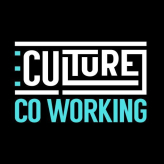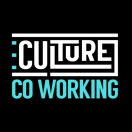
2025 Planning: Simple Year-End Strategies for Small Business Success
As the curtain draws on 2025, small businesses have a golden opportunity to tie up loose ends and lay the foundation for future success. Year-end strategies are not just about wrapping up the books; they are about setting the stage for continued growth and SME performance. With a bit of planning and some effective business actions, you can ensure a strong finish to the year. Whether you’re a freelancer, a small business owner, or a remote worker, this end of year checklist will help you tick off essential tasks and gear up for the year ahead. So grab a cuppa, pull up a chair, and let’s chat about how you can make 2025 planning work wonders for you.
Focus on Financial Health
A healthy financial foundation is crucial for any small business aiming for a strong finish to the year. Examining your finances helps you understand your business’s current position and prepares you for the future. Let’s delve into how you can review and adjust your budget, and streamline expense management effectively.
Review and Adjust Budgets
Reviewing your budget is like giving your business a financial health check. Start by comparing your actual spending against your budgeted figures. Look for discrepancies and understand why they exist.
-
Identify Variances: Pinpoint areas where spending exceeded or fell short of expectations.
-
Assess Needs: Consider whether these variances signal a need for budget changes in 2025.
-
Adjust Accordingly: Revise your budget to better reflect actual performance and future projections.
Regularly updated budgets enable better decision-making and more efficient resource allocation. For instance, if marketing expenses were lower than anticipated due to successful organic campaigns, reallocating funds to under-budgeted areas could improve overall business performance.
Streamline Expense Management
Expense management is key to maintaining financial health. Start by evaluating your current processes. Are there inefficiencies or redundancies that could be eliminated?
-
Audit Expenses: Conduct a thorough review of all outgoing cash flows to identify areas for cost-cutting.
-
Implement Tools: Consider using expense management software to automate and track spending effortlessly.
-
Set Approval Processes: Establish clear guidelines for expense approvals to avoid unnecessary expenditures.
Effective expense management not only cuts costs but also sheds light on spending habits, enabling more strategic financial planning. Businesses that have adopted automated tools often report improved accuracy and reduced processing times, leading to more informed budgeting decisions.
Strengthen Customer Relationships

Nurturing customer relationships is vital for business growth. As the year wraps up, there’s no better time to engage with your clientele meaningfully. Strengthening these bonds can improve loyalty and satisfaction, driving long-term success.
Personalised Year-End Communications
Personalised communications can make customers feel valued and appreciated. Start by segmenting your customer base and tailoring messages to fit each group.
Consider these steps for effective communication:
-
Segment Audiences: Divide your customers into groups based on purchasing behaviour, preferences, or demographics.
-
Customise Messages: Tailor your communications to address the specific needs and interests of each segment.
-
Include a Personal Touch: Use customer names and reference past interactions or purchases to enhance personalisation.
Personalised communications can boost engagement and loyalty. For example, a small online retailer might send holiday cards with exclusive discounts to repeat customers, encouraging further purchases and reinforcing brand connection.
Customer Loyalty Initiatives
Customer loyalty programmes can incentivise repeat business and foster long-term relationships. Focus on creating initiatives that reward customers for their continued support.
-
Develop a Loyalty Programme: Create a points or rewards system that encourages repeat purchases.
-
Offer Exclusive Perks: Provide members with early access to sales or special events.
-
Seek Feedback: Regularly gather input from customers to improve and evolve your loyalty offerings.
Effective loyalty programmes can enhance SME performance. A local café implementing a stamp card for free drinks after a set number of purchases not only encourages repeat visits but also boosts customer satisfaction and advocacy.
Prepare for Future Growth

Growth preparation involves setting clear goals and enhancing team collaboration. Building a solid plan ensures you’re ready to tackle challenges and seize opportunities in 2025.
Setting Achievable 2026 Goals
Goal setting is crucial for steering your business in the right direction. Begin by analysing past performance and identifying areas for improvement.
-
Reflect on 2025: Review what worked well and where there were challenges.
-
Set SMART Goals: Ensure goals are Specific, Measurable, Achievable, Relevant, and Time-bound.
-
Align with Vision: Ensure these goals support your overall business vision and mission.
Achievable goals provide direction and motivation for your team. A tech startup might set quarterly objectives, such as increasing user acquisition by 10%, to maintain focus and drive business growth.
Enhancing Team Collaboration
Team collaboration is essential for achieving business goals. Strong teamwork can lead to innovative solutions and increased productivity.
-
Invest in Tools: Use collaboration platforms to facilitate communication and project management.
-
Encourage Open Dialogue: Foster an environment where team members feel comfortable sharing ideas and feedback.
-
Provide Training: Offer workshops or resources to improve team skills and collaboration techniques.
Enhanced collaboration leads to better SME performance. A marketing agency might adopt a new project management tool to streamline workflows, resulting in more efficient campaigns and higher client satisfaction. By fostering a collaborative culture, businesses can better prepare for future challenges and opportunities.
From Chaos to Clarity — Why September is Your Secret Weapon
Why Quiet Desks Might Be Your Productivity Superpower

















